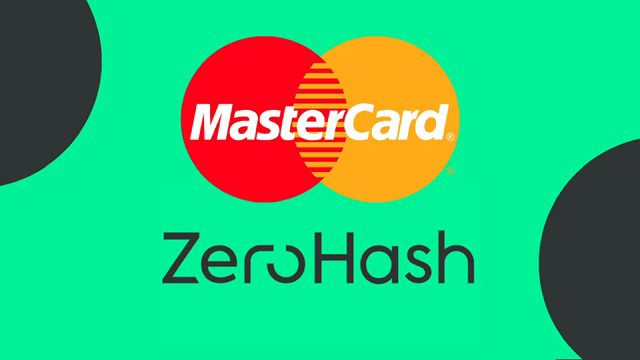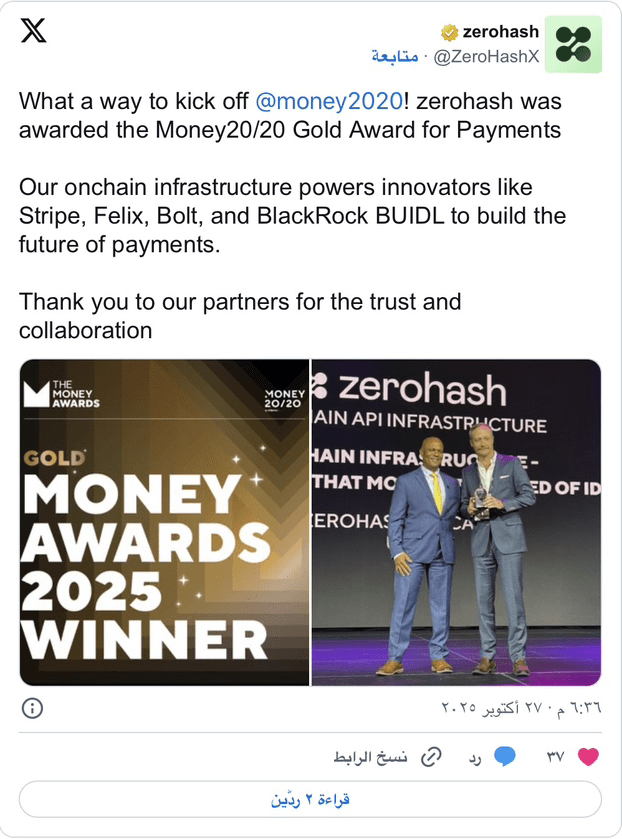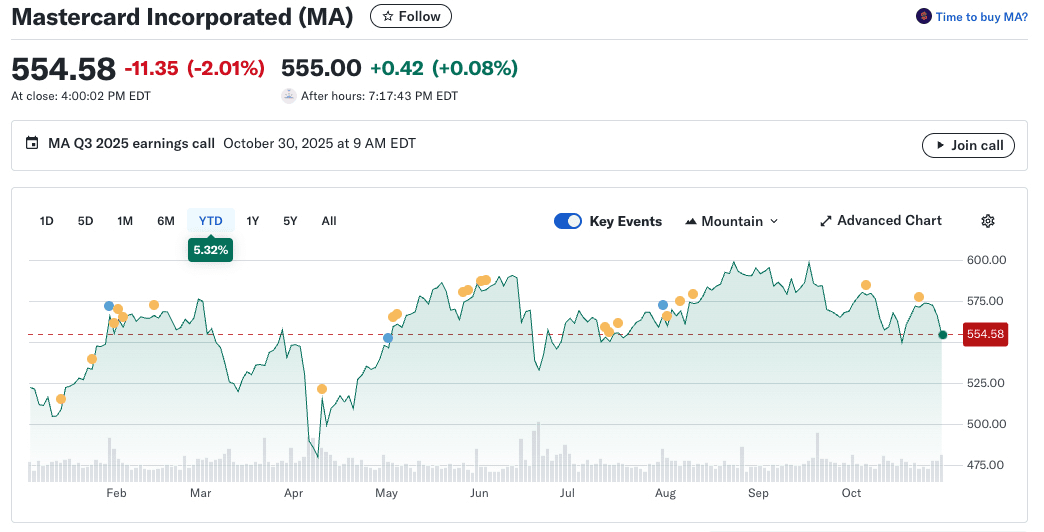
Mastercard approaches a deal with Zerohash worth up to $2 billion
Payment giants are expanding stablecoin tools and regulated blockchain-based services
Banks are testing tokenized deposits, driving demand for compliant infrastructure
Several sources directly familiar with the discussions indicate that Mastercard is nearing a deal to acquire Zerohash in a transaction valued between $1.5 billion and $2 billion. The acquisition would represent Mastercard's strongest direct push toward stablecoin infrastructure.
The talks come as global payment companies race to seize new revenue from blockchain-based settlement. Clearer regulatory standards in the U.S. and Europe have allowed traditional institutions to build regulated digital asset products.
The push towards infrastructure is accelerating
Zerohash is building API-driven tools that assist banks, fintech companies, and brokerages in integrating cryptocurrency trading, tokenization, and stablecoin transfers. In April, the company reported that its platform supported over $2 billion in tokenized fund flows during the previous four months, reflecting increasing institutional demand.
Industry sources indicate that Mastercard wants direct control over that infrastructure instead of a loose integration deal. Fortune first reported on the negotiations on Wednesday as part of a broader push by the payments network to expand regulated digital asset services. Zerohash also operates a tokenized funds infrastructure for BlackRock BUIDL and Franklin Templeton's BENJI token, according to the company.
The potential acquisition follows separate discussions involving Pivon K, a stablecoin startup based in London. That deal was estimated at $2 billion, but Coinbase moved to exclusivity with Pivon K, limiting competing offers, according to people familiar with those discussions.

Mastercard has been actively involved in cryptocurrency services for several years, including card programs with major exchanges. Its recent focus on stablecoin settlement indicates a shift in strategy. Instead of supporting consumer-facing wallets, Mastercard seems to be building the foundational infrastructure for regulated blockchain payments.
Its importance for payments
A successful acquisition could reshape how Mastercard manages cross-border transactions. By owning regulated infrastructure, the company might settle stablecoin transfers on its network without relying on external partners. This model could attract banks that want to settle on blockchain but cannot operate custody or tokenization in-house.
Recent industry moves show momentum. In May, Citi processed tokenized deposits as part of a corporate treasury experiment, completing cross-border payment settlements in minutes instead of days. JPMorgan rebranded its blockchain platform Onyx to Kynexis, and began deploying on-chain settlement for forex for USD and EUR in early 2025, allowing multinational clients faster netting and transparent liquidity. These developments have prompted payment networks to seek partners for regulated infrastructure, adding urgency to Mastercard's interest in Zerohash.

Mastercard's stock performance year-to-date / Source: Yahoo Finance
Analysts say the Zerohash deal could help Mastercard avoid exclusion as regulated stablecoins expand into payroll, treasury, and remittance markets. Mastercard would gain a ready-to-use package for payments and tokenized assets if the deal is completed.
Visa has also delved into stablecoin banking services. On September 30, the company announced a pilot program for financing via Visa Direct using stablecoins for business pre-financing, highlighting how major networks are preparing for on-chain settlement.
#BinanceHerYerde #BinanceSquare #BinanceSquareFamily #BinanceExplorers